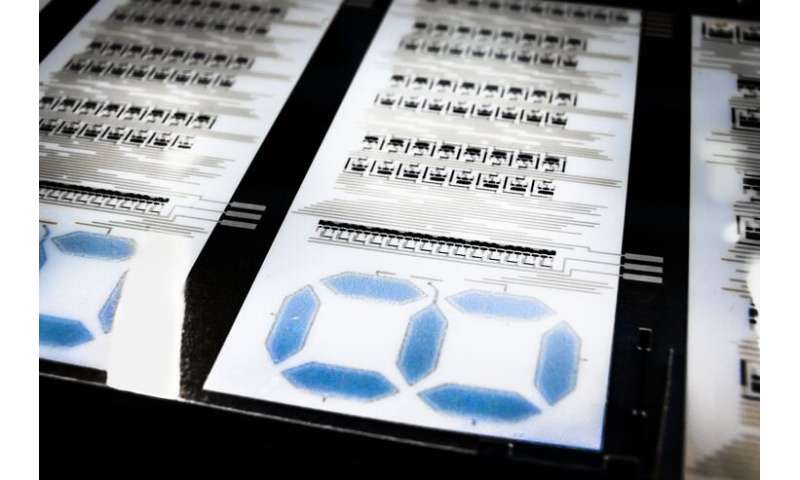Large-scale integrated circuits produced in printing press #Printing #Electronics @techxplore_com

Techxplore posts about researchers at Linköping University and RISE, Campus Norrköping, showing, for the first time, that it is possible to print complete integrated circuits with more than 100 organic electrochemical transistors. The result has been published in Nature Communications.
“This is a decisive step for a technology that was born at Linköping University just over 17 years ago. The result shows that we are again leading the field, thanks to the close collaboration between basic research at the Laboratory of Organic Electronics, LOE, and applied research at RISE,” says Magnus Berggren, professor of organic electronics and director of LOE.
“The advantage we have here is that we do not need to mix different manufacturing methods: everything is done by screen printing, and in relatively few processing steps. The key is ensuring that the different layers end up in exactly the right place,” says Peter Andersson Ersman, researcher in printed electronics at the RISE research institute.
Printing electronic circuits with a line width of approximately 100 micrometers also places high demands on the print technology, and the printed electronics research has here been aided by the graphics industry. They have developed screen printing frames with meshes that can print extremely fine lines. And many hours of research were needed to develop printing ink with the right properties.
“We can now place more than 1000 organic electrochemical transistors on an A4-sized plastic substrate, and can connect them in different ways to create different types of printed integrated circuits,” says Simone Fabiano, head of research in organic nanoelectronics in the Laboratory of Organic Electronics.
These large-scale integrated circuits (abbreviated “LSI”) can be used, for example, to power an electrochromic display, itself manufactured as printed electronics, or another part of the online electronic world that the internet of things brings.
